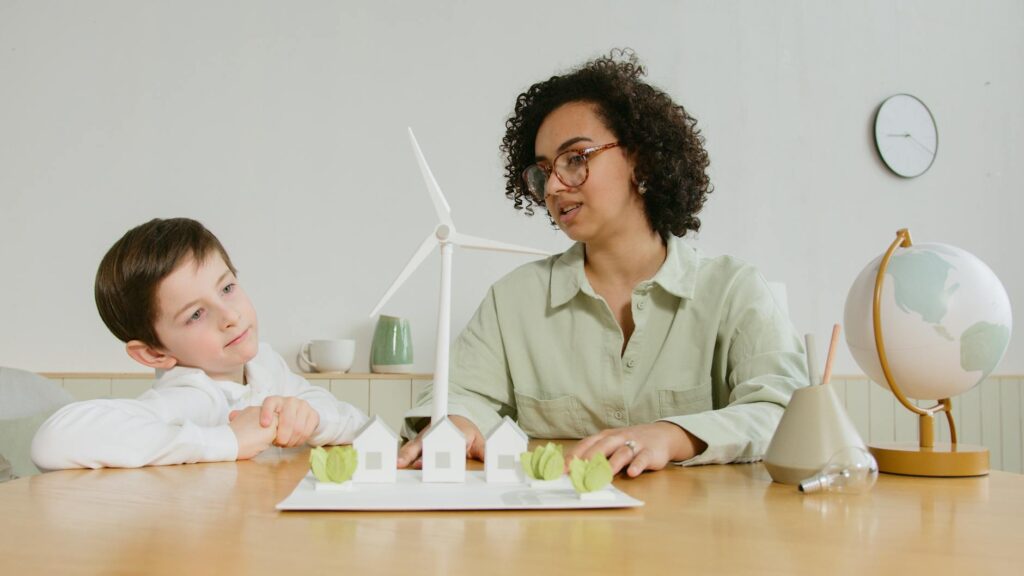What is knowledge construction?

What is knowledge construction?
Knowledge construction is a fundamental concept that plays a critical role in both personal and professional development. It involves how individuals and groups create and organize knowledge, transforming experiences and information into meaningful understanding. This process is not just for academic settings; it permeates everyday life, influencing how we solve problems, make decisions, and reflect on our experiences.
Defining Knowledge Construction
In educational and cognitive psychology contexts, knowledge construction refers to the active process through which learners create new understandings based on their prior knowledge and experiences. This transformative process allows individuals to integrate new information, building a more comprehensive understanding of the world around them.
Theoretical Frameworks
Two key theories that frame knowledge construction are Piaget’s Constructivism and Vygotsky’s Social Constructivism. Piaget emphasized that learners actively construct knowledge through experiences and interactions with their environment. He believed that knowledge is built in stages, with learners gradually developing more complex understandings.
On the other hand, Vygotsky’s approach introduces the importance of social interactions in knowledge construction. He argued that cognitive development is heavily influenced by social context, asserting that learning is co-constructed through collaboration and communication with others. For a deeper exploration of these theories, visit Constructivism in Piaget and Vygotsky.
Characteristics of Knowledge Construction
Several characteristics define knowledge construction:
- Active Engagement: Learners are not passive recipients of information. They engage actively with content, questioning and reflecting on their understanding.
- Collaboration: Knowledge is often constructed socially. Collaborative learning experiences foster shared understanding and diverse perspectives.
- Contextual Relevance: Learning is more effective when it connects to real-life situations, allowing learners to apply what they know in meaningful ways.
Understanding these characteristics can help educators craft learning environments that support effective knowledge construction.
The Process of Knowledge Construction
The process of constructing knowledge involves several stages, often characterized by inquiry, experimentation, and reflection.
Active Learning Techniques
Active learning techniques are essential in facilitating knowledge construction. For instance, methods like Think-Pair-Share allow students to think critically about a topic, discuss their ideas with peers, and share insights with the larger group. Other techniques include case studies, role-playing, and flipped classrooms. Each of these methods encourages students to engage deeply with the material, fostering a richer understanding. You can find various active learning strategies at Active Learning – Center for Teaching Innovation.
Role of Reflection
Reflection is a vital part of the knowledge construction process. It allows learners to step back and critically evaluate their experiences, helping to solidify their understanding. Through reflection, individuals can connect new knowledge with their prior experiences, assess their learning strategies, and identify areas for improvement. This process encourages self-awareness and promotes continuous personal growth. Learn more about the importance of reflection in learning through this resource on the role of reflection in education.
Applications of Knowledge Construction
Knowledge construction is applicable in various settings, with significant implications for education and personal development.
In Education
Educators can implement knowledge construction strategies by designing learning experiences that encourage exploration and collaboration. For instance, project-based learning allows students to work together on real-world problems, promoting active engagement and critical thinking. Additionally, teachers can create opportunities for peer teaching, where students help one another construct understanding, thereby enhancing their own learning.
In Personal Development
Knowledge construction techniques are not just for classrooms. Individuals can use these methods to improve productivity and study habits. For example, setting learning goals and reflecting on progress can help you identify effective strategies. Embracing active learning techniques, such as summarizing information and teaching others, can enhance your retention and understanding of new material. You can explore more about these methods in personal development through resources like Constructing Knowledge in the Classroom.
Challenges in Knowledge Construction
Despite its importance, knowledge construction presents challenges that learners may encounter.
Overcoming Misconceptions
One common challenge is overcoming misconceptions that hinder knowledge construction. Misunderstandings can create barriers to learning, making it essential to address these misconceptions head-on. Educators can help by providing clear explanations and opportunities for discussion, allowing learners to clarify their understanding.
Balancing Prior Knowledge with New Information
Integrating new concepts while managing existing knowledge can be difficult. Learners may struggle to reconcile new information with their prior experiences. To navigate this, it’s crucial to create a flexible learning environment where learners can adjust their mental frameworks as they encounter new ideas. Constructivist approaches emphasize the importance of building on what learners already know, making the integration of new knowledge smoother.
Conclusion and Future Directions
In summary, knowledge construction is a dynamic and ongoing process that is vital for personal and professional growth. By understanding the frameworks, processes, and challenges involved in knowledge construction, you can enhance your learning experiences. As education and personal development continue to evolve, embracing knowledge construction strategies will remain essential. The future of learning hinges on our ability to construct meaningful knowledge that is applicable in all aspects of life.
For those interested in refining their learning approach, consider exploring the resources mentioned throughout this article to deepen your understanding of knowledge construction and its practical applications.

Photo by Artem Podrez